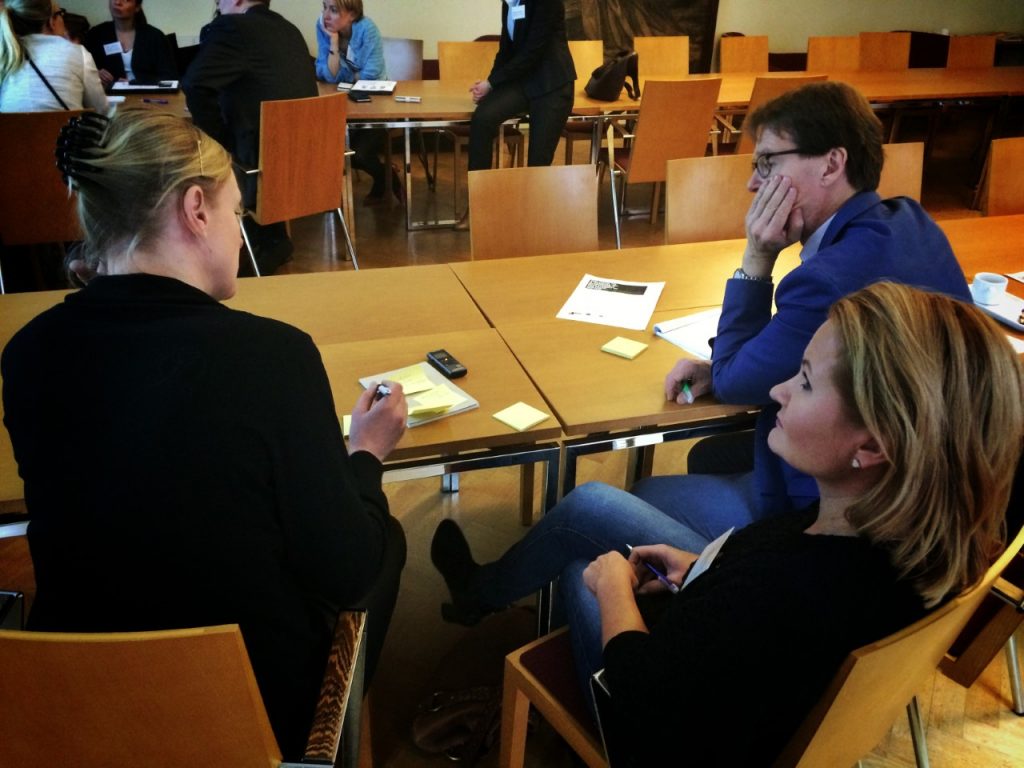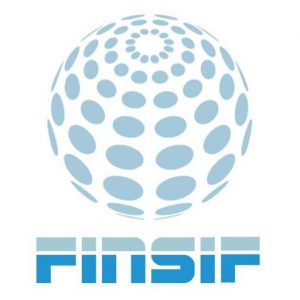A workshop seminar organized by team RIFISER brought together a group of investors, food industry experts and scholars from different faculties with a joint interest in sustainability. The hot topic of the inspiring afternoon – as well as the key question of the whole RIFISER project – was, how to bring into practice the principles of responsible investment.
“More engagement, less black lists”
UN’s Sustainable Development Goals set an ambitious agenda for both the food industry and the investor community. “Promoting them actively must start right away if we really want to reach the goals by 2030” argued prof. Bert Scholtens in his opening keynote speech.

Food sector specialists, responsible investment specialists and scholars pondered the interlinkages of food, finance and sustainability during the seminar.
Question is: how to succeed in the almost-impossible task? The participants underlined the importance of co-operation, both amidst investor community and between investors and investees. Co-operation is a way to move from negative screening – that is, excluding questionable companies or industries from the portfolio – towards a more collaborative, constructive and even more effective approach. As Hanna Kaskela from mutual pension insurance company Varma crystallized in her presentation: “More engagement, less black lists.” This calls for more concrete target setting, measuring and reporting.
When it comes to measuring, the scholars challenged the investors to push their thinking a bit further. They suggested that investors who focus on responsible investment should include more complex and defined indicators, over and above mere monetary performance. This points to the multifaceted nature of responsibility, well represented in the total of 17 themes in the UN’s Sustainable Development Goals.
Food industry faces big time the challenges of sustainable development
Food and agriculture is an industry that bears a major importance both to social and environmental sustainability. Agriculture is the largest employer in the world, and the food sector accounts for no less than 30% of the world’s total energy consumption, to name but a few indicators of the scale and weight of food and agriculture. A large Finnish trading sector company Kesko has already taken some great leaps towards sustainability: “Kesko pays special attention to human rights issues and working conditions in the purchasing chain” told Riikka Toivonen from Kesko in her presentation.
Both of the seminar’s presenters, Varma and Kesko, share a fairly similar agenda for the coming years: Varma’s goal is to reduce the carbon footprint of its investments and Kesko has committed itself to reducing its energy consumption by 7,5% before year 2025. The scholars shared the same ideal, and as a result of the workshop session presented an intriguing vision: a responsible food company of year 2030 promotes circular economy, recycling and environmentally friendly production, is close to its consumers but also takes good care of its staff, farmland and supply chain. That is a great and ambitious vision to be reached for through developing food industry and supporting the best performers through investments.

 (Agriculture and forestry, Food sciences)
(Agriculture and forestry, Food sciences)